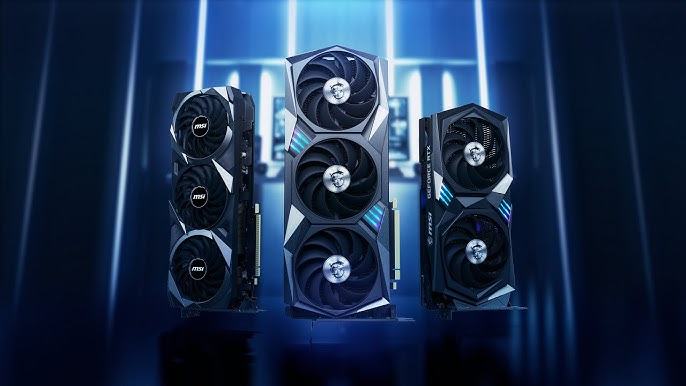
The creator of MSI Afterburner, Alexy Nicolaychuk dubbed "Unwinder" on the software's development forum, has confirmed that the software will see a new update close to the retail launch of Nvidia's RTX 5080. For context, the latest stable release dates back to April 2023, almost two years ago. The new update promises independent fan monitoring on triple-fan GPUs. Alexy also hints that MSI's upcoming slew of RTX 5080 offerings might integrate individual per-fan controllers for more granular control.
Controlling the speed of each fan individually requires some underlying changes on the GPU's PCB. Even across premium high-end triple-fan GPUs, many AIBs choose to connect all fans to a single header or two. So, while it is possible to independently adjust the speed of the first two fans, the third fan is fixed in relation to them.
The forum comment states that RTX 5080 GPUs (likely from MSI) provide three independent fan controllers which is a step up from the previous generations. Now that the hardware part is all sorted, software-level implementation will arrive in the form of an upcoming MSI Afterburner update near the RTX 5080's release. This indicates that the RTX 5080 will be the first Blackwell GPU to hit shelves, corroborating previous rumors of a January 21 release date. Keep in mind that not all RTX 5080 GPUs may have this feature.

Alexey says that there will be a new Afterburner button for asynchronous speed control for the third fan. With independent control over all fans, you can set custom speeds and curves for each fan, individually. The actual meaning of the second last line could be lost in translation, However, the update will likely be compatible with GPUs from other vendors as well; provided if their GPUs have three fan controllers.
Nvidia's RTX 5080 is rumored to adopt the GB203-400-A1 die outfitted with 10,752 cores or 84 SMs, 16GB of 30 Gbps GDDR7 memory, and a 256-bit memory bus. With 10% more CUDA cores than its predecessor, we can expect a moderate uplift in performance but most of that depends on how good Blackwell is, on an architectural level. As of writing, only 36 hours remain until Nvidia's keynote. We can expect a full-fledged overview of Blackwell at the event.







